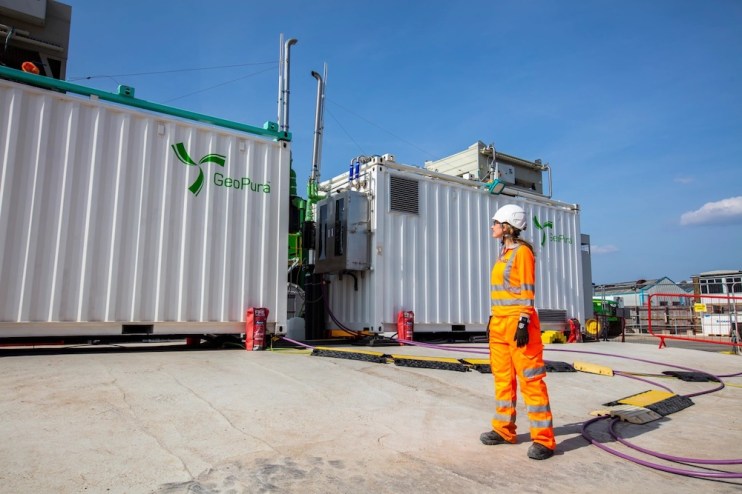Green hydrogen future? Geopura secures millions in funding from GM, Barclays and Siemens

Green hydrogen specialist Geopura has secured £36m from its latest funding round with plans to scale its business.
The funding round was led by major industry players such as GM Ventures – the investment arm of General Motors – and co-led by Barclays Sustainable Impact Capital, with SWEN CP and Siemens Energy Ventures also participating.
These investors will also act as strategic partners for Geopura as it scales its hydrogen power generation technology – which replaces diesel-fuelled generators with zero-emission hydrogen power units (HPUs).
The HPUs are used for temporary, supplementary, off grid and backup power, with Geopura delivering its first HPU in collaboration with Siemens Energy in 2019.
Geopura generates hydrogen and transports the fuel to customers for use in its HPUs – with customers renting the units and paying for the fuel used.
It currently provides hydrogen power for multiple big-name customers including Balfour Beatty, HS2, National Grid and the BBC.
The company is targeting sectors with the highest diesel use today, such as construction, infrastructure, outdoor events, and back-up power.
Andrew Cunningham, chief executive of Geopura, said: “We have secured the right mix of investors, forming strategic partnerships that not only provide the funds to enable us to scale rapidly, but also the skills and resources to accelerate the transition to zero emission fuels. With the support of our investors we can help turn the market on its head and build a green hydrogen economy this decade, not next.”
Green hydrogen funding boosts UK ambitions
Geopura is a UK-based company, with its latest round of funding a boost for the domestic energy sector amid reports other hydrogen players are considering opportunities in the US.
With hubs in Nottingham and Newcastle upon Tyne in the UK, the £36m investment will enable Geopura to mass manufacture HPUs alongside partner Siemens Energy.
Geopura also plans to grow the use of hydrogen into other hard-to-decarbonise areas of the UK’s energy system, such as EV charging and supplementary grid power, as economies ramp up electrification plans.
The company is looking to build a fleet of over 3,600 HPUs by 2033, providing clean, low-cost reliable power, and displacing more than six million tonnes of CO2 emissions through their operating lifetime.
Green hydrogen is produced by splitting water through electrolysis – producing hydrogen as an energy source while venting oxygen into the atmosphere with no carbon impact.
Goldman Sachs has estimated it could supply as much as 25 per cent of energy demand by 2050, with a $10tn addressable market.
The UK government has set its own 10GW target of blue and green hydrogen capacity this decade as part of its energy security strategy.